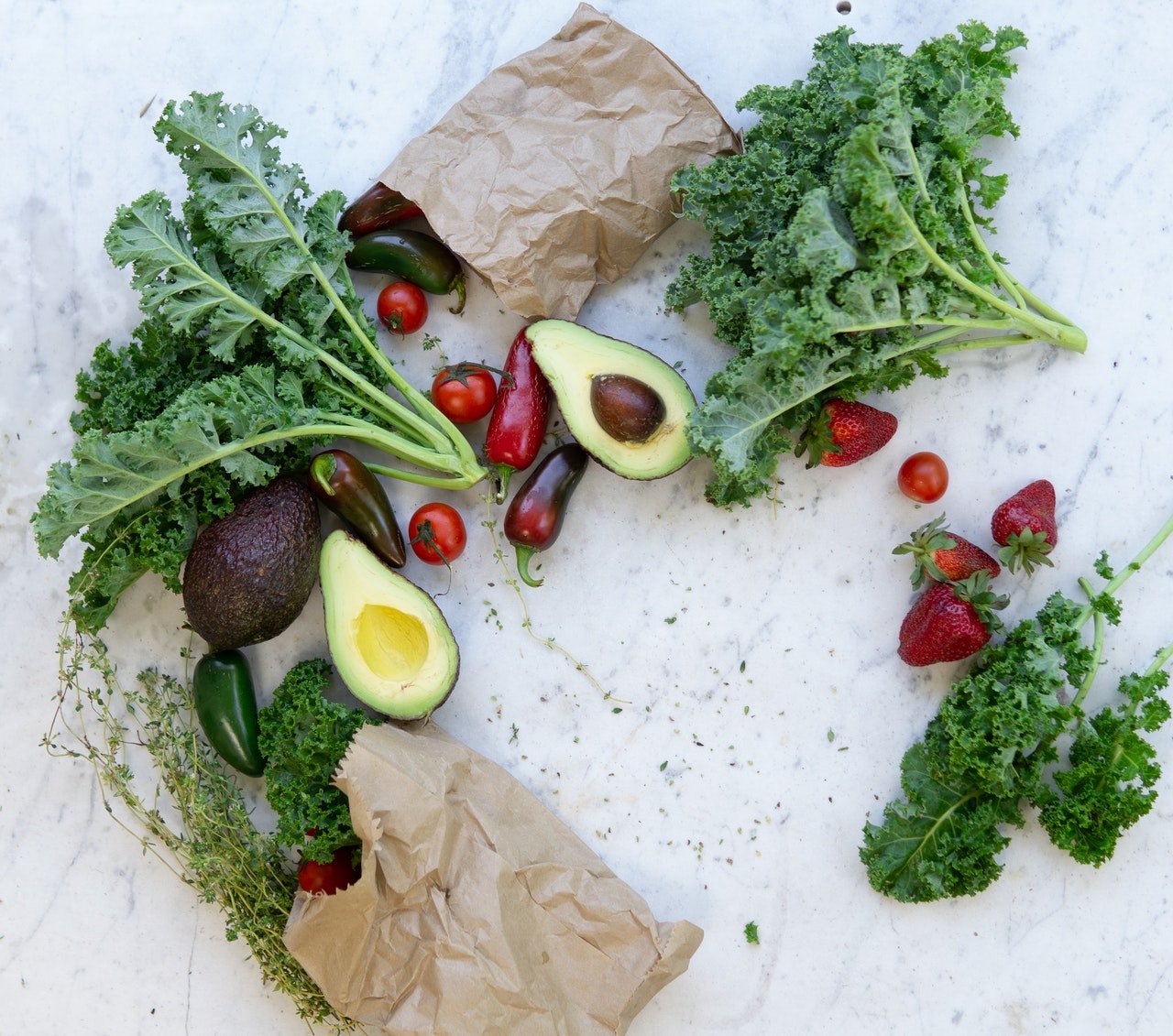
20 Diet Weight loss tips that are Simple and Effective

Share:
Trying to Lose weight and keep it off can seem daunting but with the right plan and mindset, you can reach your healthy weight. making small changes to your diet can also help promote weight loss.
Below are some diet tips that can help you lose weight:
1. Drink plenty of water:
This will help to flush out toxins and keep you hydrated. It is recommended to drink eight glasses of water a day.
2. Avoid sugary drinks:
Drinks like soda and fruit juice are high in sugar and calories. Instead, opt for water or unsweetened tea.
3. Eat more protein:
Protein keeps you feeling full longer and helps to build muscle. Good sources of lean protein include lean meats, poultry, fish, legumes, and eggs
4. Fill up on fiber:
Fiber helps to regulate digestion and can help you feel fuller longer. Good sources of fiber include whole grains, fruits, vegetables, and legumes.
5. Avoid processed foods:
Processed foods are often high in calories, salt, and sugar. Instead, opt for whole foods that are unprocessed and closer to their natural state.
6. Minimize Distractions:
When you’re trying to lose weight, it’s important to focus on your food and not let distractions get in the way. That means no TV, phone, or computer at meals.
7. Eat Slowly:
It takes about 20 minutes for your brain to register that you’re full. If you eat too quickly, you may end up eating more than you need.
8. Manage Stress:
Chronic stress can lead to emotional eating and weight gain. Find healthy ways to manage stress, such as exercise, deep breathing, or meditation.
9. Get Enough Sleep:
Sleep deprivation can lead to increased hunger and cravings for unhealthy foods. Aim for seven to eight hours of sleep a night.
10. Plan Ahead:
Meal planning can help you make healthier choices and avoid last-minute, unhealthy decisions. Spend some time each week preparing meals or packing snacks and bringing them with you on the go.
11. Eat healthy fats:
Healthy fats are an essential part of a weight-loss diet. They help you feel full and satisfied, while also providing numerous health benefits. Good sources of healthy fats include avocados, olive oil, nuts, and seeds.
12. Avoid “diet” foods:
Many “diet” or low-fat foods are actually high in sugar and calories. Instead, opt for whole foods that are naturally low in fat, such as fruits, vegetables, and lean meats.
13. Avoid eating late at night:
Eating close to bedtime can make it harder to fall asleep and can lead to weight gain. If you’re hungry late at night, try snacking on a piece of fruit or a small handful of nuts.
14. Avoid excessive alcohol intake:
Alcohol is high in calories and can contribute to weight gain. If you do drink, do so in moderation and try to choose lower-calorie options, such as light beer or wine.
15. Avoid eating out:
Eating out can be expensive and often unhealthy. If you must eat out, try to choose healthier options, such as grilled chicken or fish, salads, and whole-grain options.
16. Avoid “crash” diets:
Crash diets are not only ineffective, but they can also be dangerous. Instead of crash dieting, focus on making small, sustainable changes to your diet that you can stick with long-term.
17. Make sure you’re getting enough nutrients:
When trying to lose weight, it’s important to make sure you’re getting enough of the right nutrients. This includes vitamins, minerals, and fiber. Good sources of vitamins and minerals include fruits, vegetables, whole grains, and lean meats.
18. Avoid “trigger” foods:
Trigger foods are those that cause you to overeat or make unhealthy choices. For some people, these may be sugary sweets or salty snacks. Identify your trigger foods and try to avoid them.
19. Avoid eating mindlessly:
Mindless eating can lead to overeating and weight gain. When you’re eating, make sure you’re paying attention to your food and not doing other activities, such as watching TV or working on the computer.
20. Stay motivated:
It can be difficult to stick with a weight-loss plan, but it’s important to find ways to stay motivated. This may include setting goals, tracking your progress, or finding a support group.
Blood Sugar and Weight Loss
Maintaining a healthy weight is important for many reasons. It can help you avoid or control health problems, feel better about yourself, and improve your energy level and mood.
If you have diabetes, losing weight can also help you lower your blood sugar levels and reduce your risk of developing complications.
The best way to lose weight is to do it slowly and steadily. You can make changes to your diet and exercise routine that will help you lose weight and keep it off over the long term.
Pounds a Week
To lose one pound a week, you need to create a daily calorie deficit of 500 calories. This can be done by eating fewer calories, burning more calories through physical activity, or both.
If you reduce your calorie intake by 250 calories per day, you’ll need to burn an additional 250 calories through exercise to lose one pound per week. This can be achieved by:
– walking at a moderate pace for 30 minutes per day
– biking at a moderate pace for 20 minutes per day
– swimming at a moderate pace for 20 minutes per day
Making these changes to your diet and exercise routine can help you lose weight safely and keep it off over the long term.
If you need help getting started, there are many resources available, including weight-loss programs, support groups, and online tools. Talk to your doctor about what might work best for you.
Examples of Healthy Foods to Eat
– Fruits and vegetables of all types
– Whole grains such as oatmeal, brown rice, and whole-wheat bread
– Lean protein sources such as grilled chicken, fish, tofu, and beans
– Healthy fats such as avocados, nuts, and olive oil
Tips for Eating Out
If you’re eating out, choose restaurants that offer healthy options. When ordering, make sure to:
– Avoid rich foods
-Avoid fried foods
– Choose lean protein sources
– Fill up on fruits and vegetables
– Ask for dressings and sauces on the side
Eating a healthy diet is an important part of maintaining a healthy weight. However, it’s not the only factor. Physical activity is also important.
The Department of Health and Human Services recommends that adults get at least 150 minutes of moderate-intensity aerobic activity or 75 minutes of vigorous-intensity aerobic activity per week.
Examples of moderate-intensity activities include:
– walking at a moderate pace (2.5 miles per hour)
– biking at a moderate pace (10 miles per hour)
– swimming at a moderate pace (20 laps per pool length)
Examples of vigorous-intensity activities include:
– running at a fast pace (5 miles per hour)
– biking uphill or at a high intensity (15 miles per hour)
– swimming laps at a fast pace (30 laps per pool length)
In addition to aerobic activity, adults should also do strength training exercises at least two days per week. This can include lifting weights, using resistance bands, or doing bodyweight exercises such as pushups and squats.
Making physical activity a part of your daily routine can help you reach and maintain a healthy weight over the long term.
Example of what to eat for Breakfast:
-A bowl of oatmeal with berries and a cup of green tea
-Eggs scrambled with spinach and mushrooms, served with whole-wheat toast and a side of avocado
-A smoothie made with almond milk, bananas, protein powder, and flaxseed meal
-Greek yogurt topped with granola, nuts, and seeds
-A slice of whole-wheat toast with peanut butter and a sliced apple
Example of what to eat for Dinner:
-Grilled salmon with roasted Brussels sprouts and sweet potato wedges
-Chicken soup with kale and quinoa
-Stir-fry made with tofu, vegetables, and brown rice
-Roasted cauliflower with tomatoes, chickpeas, and garlic
-A salad made with mixed greens, roasted cherry tomatoes, and grilled chicken
These are just a few examples of healthy meals that you can eat to help you lose weight. There are many more options out there. The important thing is to focus on eating mostly whole, unprocessed foods and avoid processed foods, sugary drinks, and excessive amounts of saturated and unhealthy fats.
The Bottom Line
Diet and exercise are important factors in a healthy lifestyle. Eating a healthy diet and getting regular physical activity can help you reach and maintain a healthy weight. There are many resources available to help you make these lifestyle changes, including weight-loss programs, support groups, and online tools. Talk to your doctor about what might work best for you.
Healthy eating is an important part of maintaining a healthy weight. However, it’s not the only factor. Physical activity is also important. The Department of Health and Human Services recommends that adults get at least 150 minutes of moderate-intensity aerobic activity or 75 minutes of vigorous-intensity aerobic activity per week. In addition to aerobic activity, adults should also do strength training exercises at least two days per week. Making physical activity a part of your daily routine can help you reach and maintain overall health for the long term.
Most Popular


Insurance Premiums 101: All You Need

What is Coffee Bloom and why does it happen?

Business Insurance Essentials: Stay Covered
Subscribe To Our Weekly Newsletter
Categories
Related Posts

Cute Girly College Ruled Composition Notebooks
Share: In a world dominated by digital tools and apps, the humble college-ruled composition notebook

Insurance Premiums 101: All You Need
Share: What Is an Insurance Premium? An insurance premium is the price of insurance coverage.

What is Coffee Bloom and why does it happen?
Share: When coffee is ground, the natural oils and aromatics are released. When these coffee

Business Insurance Essentials: Stay Covered
Share: What is business insurance? Business insurance is protection for business owners and their employees
